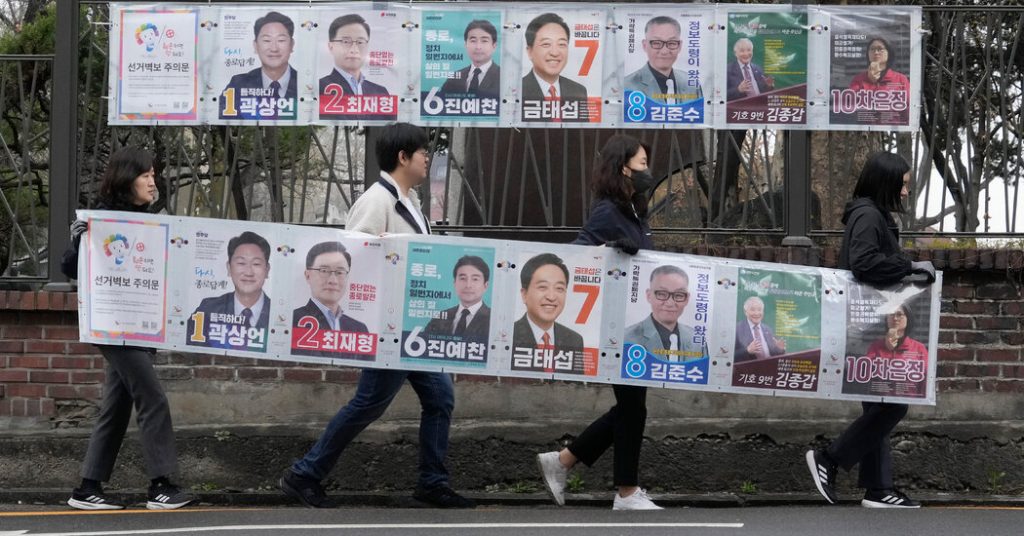President Yoon Suk Yeol has been focusing on foreign policy during his first two years in office, strengthening ties with the United States and Japan. However, his domestic agenda has faced challenges from his own missteps and opposition in Parliament. The upcoming general election will determine the makeup of the National Assembly for the next four years and could potentially impact the political fate of President Yoon and his rival, Lee Jae-myung. A win for the People Power Party, led by President Yoon, could revive his business-friendly measures and other initiatives that have been stalled.
The election is primarily a contest between the conservative People Power Party and the liberal Democratic Party, both of which have significant followings. The outcome will likely be decided by moderate and swing voters, as results from public opinion surveys within the past week cannot be disclosed before the election. Candidates have been actively campaigning across the country, with a focus on addressing key issues such as consumer prices and allegations of corruption and abuse of power. The election is seen as an opportunity for voters to either punish President Yoon or elevate the status of Mr. Lee and the Democratic Party.
A dark horse in the election is Cho Kuk, the former justice minister under President Moon Jae-in, who leads the month-old Rebuilding Korea Party. Mr. Cho has emerged as a significant figure in the opposition camp, mobilizing anti-Yoon voters with calls to make the incumbent a “lame” or “dead duck.” The political rivalry between Mr. Lee, Mr. Cho, and President Yoon has escalated in recent years, with each facing criminal charges and allegations of corruption. The campaign has been marked by personal attacks and accusations, overshadowing policy proposals.
More than 31 percent of eligible voters have already cast their ballots in early voting, with polling experts predicting swing voters and moderates will play a significant role in determining the election outcome. President Yoon has faced backlash for a recent gaffe regarding green onion prices, which opposition candidates have used to highlight his perceived disconnect from everyday life. The election has become a report card on President Yoon’s two years in office, with voters evaluating his performance and policies.
The opposition has accused President Yoon of potential impeachment threats and authoritarian tendencies, while his party has portrayed the opposition leaders and their parties as criminals. Both sides have focused on demonizing each other rather than presenting policy proposals to voters. The election has highlighted deep political polarization in South Korea, with voters sharply divided between progressives and conservatives. The outcome of the election could have implications for President Yoon’s domestic agenda and efforts to expand security cooperation with the United States and Japan to deter North Korea.
The election will determine the composition of the National Assembly and could potentially impact the political trajectory of South Korea in the coming years. For President Yoon, a victory for his party could provide a platform to revive his domestic agenda and boost his presidency. On the other hand, a win for the opposition could lead to further investigations into allegations of corruption and abuse of power, potentially jeopardizing President Yoon’s position. The election serves as a critical moment for South Korean voters to shape the country’s future and hold their leaders accountable.













